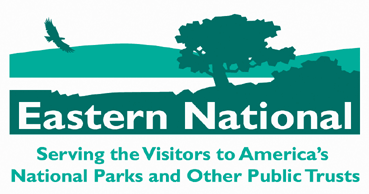|
MEANINGFUL INTERPRETATION How To Connect Hearts And Minds To Places, Objects, And Other Resources |

|
ABOUT THE INTERPRETIVE DEVELOPMENT PROGRAM
In 1995, the National Park Service (NPS) established standards for its interpreters by creating the Interpretive Development Program (IDP), facilitated by Dave Dahlen, Training Manager for Interpretation, Education and Cooperating Associations and Corky Mayo. The IDP captured the energy and vision of interpreters who strived to professionalize the field.
NPS leaders, including Sandy Weber, Cynthia Kryston, Robert Fudge, Becky Lacome, Dave Dahlen and David Larsen, developed Module 101: Fulfilling the NPS Mission — the Process of Interpretation, to embrace the success and principles of the past, establish a professional language allowing for debate and change, and create practical learning tools that help interpreters consistently deliver quality programs and services. It became the philosophical cornerstone of the IDP.
This volume captures the essential philosophy and best practices of the IDP. It represents thinking generated by hundreds of field interpreters through countless interpretive courses, workshops, and conversations.
Forty NPS interpreters made a key contribution to the IDP and the profession in 1996 when they created what has become the agency's working definition of interpretation. "Programs, media and conversations that provide opportunities for audiences to form their own emotional and intellectual connections to resource meanings and significance through the cohesive development of a relevant idea or ideas." This "rubric" or articulation of success became a key element of IDP standards.
The IDP continues to evolve through extensive field input. It maintains professional standards for NPS interpretation through a national benchmark curriculum. It provides training and development through classroom instruction, satellite broadcasts, publications and videos, academic partnerships, and distance learning. IDP best practices are used in many ways including: visitor experience planning, partnership efforts, program evaluation, critical resource issues interpretation, civic engagement efforts, recruiting, hiring, program auditing, and supervisory training.
The IDP also measures professional standards through a peer review/certification program that has assessed thousands of interpretive products. For more information, see the IDP's website at www.nps.gov/idp/interp.
David Larsen, editor of this volume, has been with the IDP since its inception. A field interpreter at Harpers Ferry National Historical Park for 13 years, David also taught environmental education, and worked in a regional office. As an interpretive trainer, he worked in parks all over the NPS, for the US Fish and Wildlife Service, and with the National Association for Interpretation. "I've been lucky," David says. "I was in the right place at the right time. I figure out how to put great ideas together. I'm around all kinds of creative people from different sites and agencies who have different points of view. I'm the guy who gets to synthesize all that energy.
| <<< Previous | <<< Contents>>> |
meaningful_interpretation/mi6m.htm
Last Updated: 29-May-2008
Meaningful Interpretation
©2003, Eastern National
All rights reserved by Eastern National. Material from this electronic edition published by Eastern National may not be reproduced in any manner without the written consent of Eastern National.